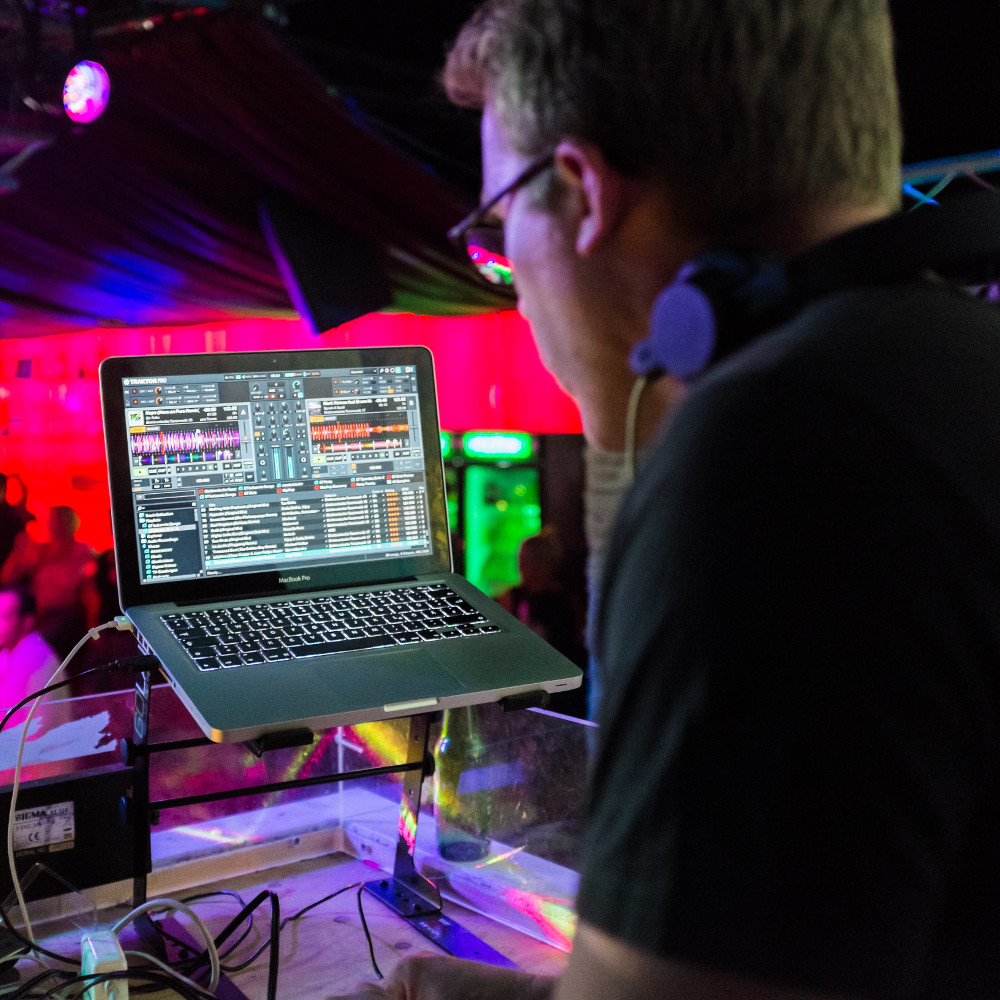 At a recent Christian high school dance, a white student approached my DJ booth and politely asked if I could play a particular song. Hannah (pseudonym) said the title but I couldn’t hear her because of the pumping music. She repeated it louder a few times but I still didn’t understand what she was saying. I finally asked if she could type the title on my computer screen so I could see it.
At a recent Christian high school dance, a white student approached my DJ booth and politely asked if I could play a particular song. Hannah (pseudonym) said the title but I couldn’t hear her because of the pumping music. She repeated it louder a few times but I still didn’t understand what she was saying. I finally asked if she could type the title on my computer screen so I could see it.
Hannah typed “N***** in Paris.” Surprised, I pointed to the title of the song and said: “I’m sorry but I can’t play that song at this dance.” As Hannah read the word I was pointing to, her face suddenly shifted in recognition and she quickly walked away to rejoin her friends.
Thinking back to my experience as a white student at a Christian high school, I remember knowing that I wasn’t supposed to say the n-word but I didn’t know why. I can’t remember learning the history of the word and its harmfulness. I was ignorant. The definition of ignorance is simply the “lack of knowledge or information.” Sometimes we use the word ignorant to insult, judge or shame others. This solves nothing. Rather, we must provide our students with the information they need to be culturally aware and engaged.
Hannah reminded me of a white fan of Kendrick Lamar who joined him on stage at a concert in 2018 to sing along to m.A.A.d City. When she started singing the lyrics including the n-word, Kendrick stopped the song. He invited her to join in again but said: “you got to bleep one single word, though”. Her response was: “Oh, I’m sorry. Did I do it? I’m so sorry… I’m used to singing it like you wrote it.” In the moment, she lacked awareness about what she was singing. She also didn’t understand the impact she was having on Kendrick Lamar and others in the audience.
Similarly, Hannah simply wanted to dance to a song that she knew and liked. She wasn’t aware that dancing and singing along to this song could negatively impact others. She also wasn’t aware of the harmful judgment she might face. An Instagram story featuring Hannah singing “N***** in Paris” could easily spread to people who are only interested in shaming her rather than educating in love. One of my goals as a DJ is to help students like Hannah avoid songs that may cause harm to herself or others. However, further conversation is necessary to turn these experiences into valuable long-lasting learning.
Fortunately, parents and educators have ongoing relationships with students like Hannah and have the capacity to provide her with the knowledge she needs to thrive. Simply telling her the n-word is bad doesn’t help Hannah become more aware and engaged. She needs to understand the context of the word and the harm it causes when used by white people.
Three voices that I’ve found to be helpful resources regarding hip hop and the n-word are Stereo Williams, Kendrick Lamar, and Ta-Nehisi Coates.
Billboard columnist Stereo Williams notes:
Kendrick Lamar offers his perspective as the artist by saying:
And author Ta-Nehisi Coates shows what white audiences can learn by not using the word:
These conversations are not just about a song or a word. They teach our students how to understand complex cultural challenges. They teach our students to be empathetic to the experience of others. And they teach our students to meaningfully engage with the world around them. We can help our students become the wise, loving, engaged leaders this world needs. If you’d like help, I’d love to equip your students with discernment skills through an Engaging Music Presentation.
[youtube https://www.youtube.com/watch?v=QO15S3WC9pg]
